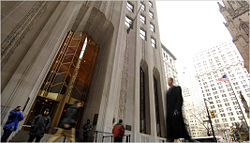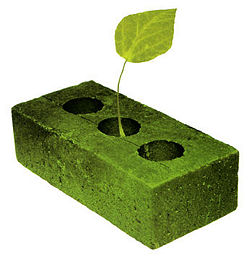Home
From Wikibon
| Line 3: | Line 3: | ||
__NOTOC__ | __NOTOC__ | ||
| - | <div style="float:right"> | + | <div style="float:right">[http://wikibon.org/register JOIN WIKIBON] and be eligible to win an |
| + | |||
| + | Amazon Kindle!''' | ||
| + | |||
| + | [[Image:Kindle-107.jpg]] | ||
| + | |||
| + | View our latest [http://wikibon.org/wiki/v/Wikibon_Contests Wikibon contest] | ||
| + | |||
| + | for new members | ||
</div> | </div> | ||
Revision as of 02:34, 1 October 2009
Amazon Kindle!
View our latest Wikibon contest
for new members
Latest Peer Incite Research:
Wikibon Highlights:
NEW Wikibon Research:
| >>Join our Group | >>Become a Fan | >>Follow @Wikibon | >>Read the Blog | ||||
WikitipPrevention of Over-Cooling in Blast FreezersFood safety is a top concern for many businesses in food and beverage industry like restaurants, catering units, bakeries, meat and fish processing. Time and temperature are essential for the food to remain safe to eat. The blast freezer is a freezer which is extremely cold. Such freezers preserve food at very low temperatures, freezing it extremely quickly. A blast freezer can reduce temperature of a food from +70 degrees C to -18 degrees C in less than 4 hours. Bacteria cannot thrive in the extremely cold environment of blast freezers. At these low temperatures, blast freezer has almost no way of preventing frost build-up. Frost build up in the blast freezer can lead to odors that can affect the food. Employees opening doors can create temperature fluctuations, which also affects products inside. To prevent over-cooling and temperature fluctuations, businesses in the food industry ca use temperature monitoring solutions. These solutions provide temperature monitoring for blast freezers over a wireless network to ensure temperatures are within acceptable tolerances and alert store managers when certain unfavorable conditions exist. This can prevent perhaps thousands of dollars worth of product from spoiling. These solutions have some benefits you should take into consideration if you’re in the food industry: Real time monitoring of blast freezers and climate controlled facilities Reduced product losses and increased profit and product integrity Flexible and automated reporting of objective data for all assets supporting KPI performance management, HACCP, AQIS, food safety and compliance requirements Automated reporting that reduces labor costs from manual reports Reduces carbon footprint from reduced electricity used through door monitoring Most companies buy blast freezers to meet very stringent regulations that aim to prevent any bacteria proliferation which takes places when the food is at a temperature between +65 and +10°C. Consumers are also demanding greater visibility into the temperature monitoring for your freezers to ensure products have been maintained at the proper temperature. |
Featured Case StudyFinancial giant goes greenThe corporate IT group of a very large, worldwide financial organization with 100,000 employees, has initiated an ongoing “greening” process. This is focused largely on reducing energy use both to decrease the corporation's carbon footprint while creating a net savings in operational costs over the lifetime of new, more energy-efficient equipment, including new storage systems. |
|
Featured How-To Note |
Planning a Green Storage InitiativeFluctuating energy prices have heightened electricity and energy consumption as a major issue within the technology community. IT is a significant consumer of energy and IT energy costs have been rising disproportionately because of continued investment in denser IT equipment. Estimates from the EPA and others indicate that IT will account for 3% of energy consumption by 2012. | |||




